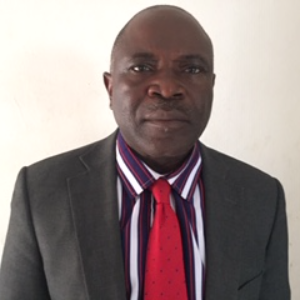Title : Lassa fever virus vaccine: Where are we?
Abstract:
Lassa fever (LF) is a zoonotic disease associated with an acute and potentially fatal hemorrhagic illness caused by the Lassa virus (LASV), a member of the family Arenaviridae, Genus Arenavirus. It was discovered in 1968 when two missionary nurses died in Nigeria. The virus is named after the town in Nigeria where the first cases occurred. The primary l hosts for the virus are multimammate rats (Mastomys natalensis) and other rodents, which are distributed widely throughout west, central, and east Africa. Humans are infected by contact with the virus shed in rats’ excreta, rats or by eating them (they are considered a delicacy and are eaten by up to 90% of people in some areas). Nigeria is the epicentre of the disease, and has since been reported in Sierra Leone, Liberia, Mali, Guinea, Côte d’Ivoire, Togo, and Benin, and distant countries (Europe & America). The incubation period ranges from 2-21 days, and about 80% of the infected are asymptomatic, and non-specific symptoms but with high incidence and case fatality in recent years. The initial symptoms of LASV are similar to other febrile illnesses, which are similar to malaria illness leading to misdiagnoses. The true burden of LASV is yet to be known, but more than 500,000 may have been infected with about 5,000 deaths per year in West Africa. Despite the global health concern of the virus, little is known about the genetic diversity. Seven lineages (I–VII) of LASV have so far been identified including the most recent lineage VII which has implication in vaccine testing. The recent exponential increase of the disease in Nigeria and the high fatality rate underscores the need to accelerate efforts towards vaccine development for preventing the disease. Consequently, the World Health Organization (WHO) has listed LASV as a high priority pathogen for Research and developed blueprint of treatments and prophylactics. Amongst others LASV poses the greatest public health risk due to their epidemic potential and for lack of appropriate countermeasures. Currently, there are no licensed vaccines to protect against LASV infection. Although numerous candidates have demonstrated efficacy in animal models, to date, only a single candidate has advanced to clinical trials using technology. The more advanced candidates are based on recombinant measles, Vesicular Stomatitis Virus or Mopiea and Lassa virus reassortants expressing Lassa virus antigens, and the deoxyribonucleic acid platform. However, the current candidate LASV vaccine (IAVIC102) is in phase 1 clinical trial in Liberia, West Africa and uses the recombinant vesicular stomatitis virus (rVSV) vector platform. The World Health Organization stated that the ongoing LASV vaccine testing should protect against lineages I-IV, suggesting that lineage VII is yet to be considered. However, the vaccine development efforts have been largely delayed due to high cost of biocontainment facility (Biosafety Level 4) requirements, the absence of established correlates of immunologic response, and uncertainty regarding the extent to which animal models are predictive of vaccine efficacy in humans. With the intensity of efforts towards Covid-19, LASV vaccine still lags behind with slow and steady progress in both pre-clinical and testing which suggest window of hope for candidates vaccine efficacy. This mini review highlights the recent progress in vaccine development and clinical trials.
Audience Take Away:
- Learn about Lassa Fever disease and Epidemiology of Lassa fever in West Africa
- Learn about the virology of Lassa Fever virus to help iv vaccine development
- The Lassa Fever Vaccine: The Journey so far
- Vaccine development trials progress, Challenges and prospects.



